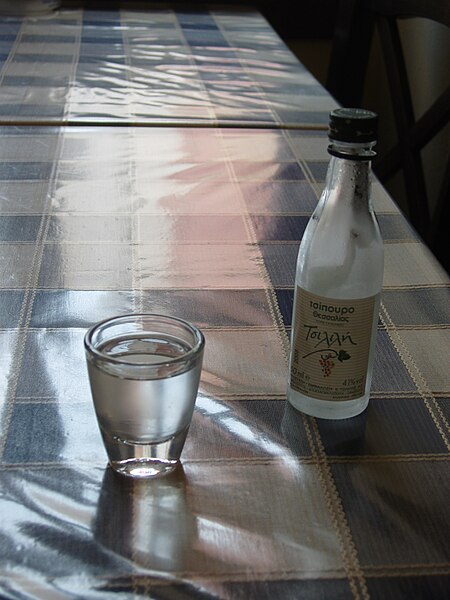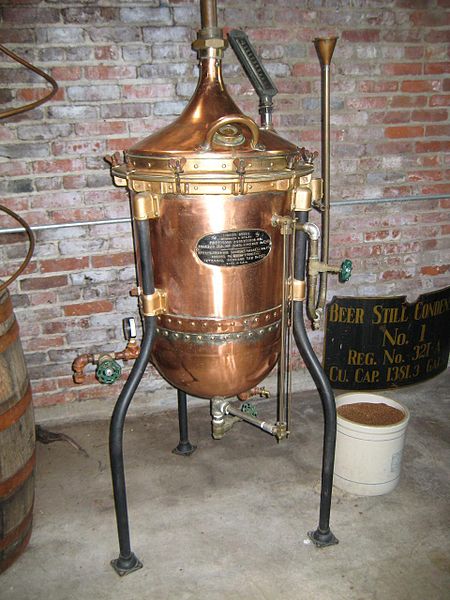Tsipouro is an un-aged brandy from Greece and in particular Thessaly, Epirus, Macedonia. Tsipouro is a strong distilled spirit containing 40–45% alcohol by volume and is produced from either the pomace or from the wine after the grapes and juice have been separated. Tsipouro is typically produced in two varieties: anise-flavored, which is the default, and pure, which contains no anise and is specifically labeled as 'without anise.' While tsipouro is usually not aged in barrels, barrel-aged versions are also available. It is similar to tsikoudia produced on the island of Crete, but unlike tsikoudia, which is single-distilled and contains no additional flavorings, tsipouro is typically double-distilled and frequently includes spices, primarily anise.
Tsipouro
Grapes used for making tsipouro
Liquor is an alcoholic drink produced by the distillation of grains, fruits, vegetables, or sugar that have already gone through alcoholic fermentation. Other terms for liquor include: spirit, distilled beverage, booze, spirituous liquor or hard liquor. The distillation process concentrates the liquid to increase its alcohol by volume. As liquors contain significantly more alcohol (ethanol) than other alcoholic drinks, they are considered "harder." In North America, the term hard liquor is sometimes used to distinguish distilled alcoholic drinks from non-distilled ones, whereas the term spirits is more commonly used in the UK. Some examples of liquors include vodka, rum, gin, and tequila. Liquors are often aged in barrels, such as for the production of brandy and whiskey, or are infused with flavorings to form flavored liquors, such as absinthe.
An old whiskey still
A display of various liquors in a supermarket
Some single-drink liquor bottles available in Germany
Viru Valge, an Estonian vodka






